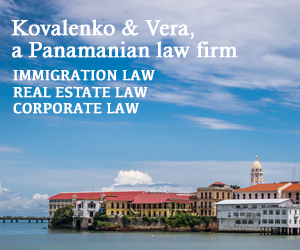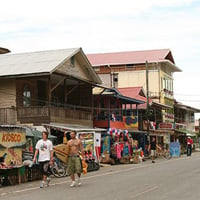Moving to Las Tablas, Panama
Last updated on Jan 08, 2025
Summary: Moving to Las Tablas, Panama: Expats, retirees and digital nomads talk about everything you need to know before moving to Las Tablas.
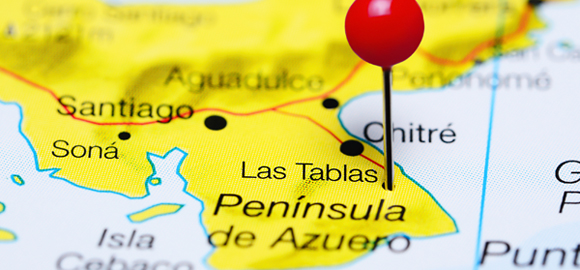
What do I need to know before moving to Las Tablas?
When we asked people what advice they would give someone preparing to move to Las Tablas, they said:
"Las Tablas, is a small town known for its rich culture, traditional festivals, and friendly locals. Before moving, expats should know that Spanish is the primary language spoken in Las Tablas, so learning the language will be beneficial. The cost of living is relatively low compared to many Western countries, but it's essential to have a clear understanding of your budget and financial situation. The healthcare system in Panama is generally good, but it's advisable to have comprehensive health insurance. The climate in Las Tablas is tropical, with a wet and dry season, so expats should be prepared for high humidity and rainfall during the wet season. Public transportation is available but not always reliable, so having a personal vehicle can be beneficial. The town is safe, but like anywhere, it's important to take standard precautions to protect yourself and your property. Las Tablas is famous for its traditional festivals, especially the Carnival, which is one of the biggest and most vibrant in the country. The local cuisine is a blend of Spanish, African, and Indigenous influences, with seafood being a staple. The pace of life in Las Tablas is slower than in larger cities, which can be a significant change for some expats. It's also worth noting that while the town has basic amenities, it lacks the variety of shopping and entertainment options found in larger cities. Finally, it's crucial to understand the visa and residency requirements before moving to Panama. It's recommended to consult with a legal expert or immigration consultant to ensure all paperwork is correctly completed," said one expat in Las Tablas.
How do I find a place to live in Las Tablas?
We asked expats how they chose their neighborhood and found a place to live. They answered:
"Finding a place to live in Las Tablas, involves several steps. First, you need to determine your budget and the type of accommodation you're looking for. This could range from a small apartment to a larger house, depending on your needs and financial capabilities. Next, you should research the different neighborhoods in Las Tablas to find one that suits your lifestyle and preferences. Some areas might be closer to amenities like shops, restaurants, and schools, while others might offer a quieter, more residential atmosphere. Once you have a clear idea of what you're looking for, you can start your search. There are several online real estate platforms where you can find listings for properties in Las Tablas, such as Encuentra24 and Compreoalquile. These websites allow you to filter your search based on factors like price, location, and property type. In addition to online searches, you might also want to consider hiring a local real estate agent. They can provide valuable insight into the local market, help you negotiate prices, and guide you through the legal process of renting or buying a property in Panama. Visiting Las Tablas in person is also a good idea if possible. This allows you to view properties firsthand and get a feel for the different neighborhoods. You can also check local newspapers and community bulletin boards for rental or sale listings. Once you've found a property you're interested in, make sure to thoroughly inspect it and ask any necessary questions. If you're planning to rent, inquire about the terms of the lease, including the duration, monthly rent, and what's included (like utilities or maintenance fees). Finally, if you decide to proceed with a property, you'll need to complete the necessary paperwork. This typically involves signing a lease agreement for rentals or a purchase agreement for sales. It's recommended to have a lawyer review these documents to ensure your interests are protected. Remember, finding a place to live in a new country can take time and patience, so don't rush the process. Take the time to find a place that truly feels like home," said one expat who made the move to Las Tablas.
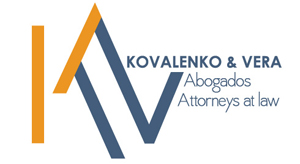
Kovalenko & Vera is a Panamanian law firm that specializes in immigration law, corporate law, real estate law, banking, contract negotiation, taxes and flag registry. With more than 20 years of professional practice, Kovalenko & Vera builds lasting relationships with our clients to ensure your interests are safeguarded.
Click connect to have our partner contact you via e-mail and/or phone.

Kovalenko & Vera is a Panamanian law firm that specializes in immigration law, corporate law, real estate law, banking, contract negotiation, taxes and flag registry. With more than 20 years of professional practice, Kovalenko & Vera builds lasting relationships with our clients to ensure your interests are safeguarded.
Click connect to have our partner contact you via e-mail and/or phone.
What is a typical expat home or apartment like in Las Tablas?
"Expat homes in Las Tablas, are typically spacious and comfortable, often featuring modern amenities. Many of these homes are designed with an open-concept layout, allowing for plenty of natural light and air circulation. The living areas often have high ceilings and large windows, offering stunning views of the surrounding landscape. The kitchens are usually fully equipped with modern appliances and ample storage space. Bedrooms are generously sized, often with en-suite bathrooms. Outdoor spaces are also a common feature, with many homes boasting private gardens, patios, or balconies. In terms of location, many expat homes are situated in safe, quiet neighborhoods, often within walking distance to local shops, restaurants, and other amenities. Some homes may also be located in gated communities, offering additional security and often access to shared amenities like swimming pools, gyms, and social areas. Despite the modern comforts, these homes often incorporate elements of traditional Panamanian architecture, such as terracotta roof tiles and tropical hardwood finishes. This blend of modern and traditional design helps to create a unique and comfortable living environment for expats in Las Tablas," replied a member in Las Tablas.
What is the average cost of housing in Las Tablas?
If you are thinking about moving to Las Tablas, cost of living in probably a key consideration. Expats commented about the cost of housing:
"The average cost of housing in Las Tablas can vary greatly depending on the type and location of the property. For a modest home in the city center, prices can start around $100,000. However, for larger, more luxurious homes or properties with ocean views, prices can easily exceed $300,000. Renting a property in Las Tablas is also an option, with monthly rents for a one-bedroom apartment in the city center typically ranging from $400 to $600. Please note that these are estimated prices and actual costs may vary," said one expat in Las Tablas.
Should I buy or rent a home in Las Tablas?
If you have not spent a lot of time in Las Tablas, you should rent before even thinking about buying. We asked expats there about the buy vs. rent decision:
"The decision to buy or rent a home in Las Tablas, largely depends on your personal circumstances, financial situation, and long-term plans. If you plan to stay in Las Tablas for a long period, buying a home could be a good investment. Owning a property allows you to build equity over time and could provide a sense of stability and permanence. On the other hand, renting might be a better option if you're not sure about your long-term plans or if you prefer not to have the responsibilities of home ownership. Renting can offer more flexibility, as it's easier to move if your circumstances change. It also means you won't have to worry about maintenance costs or property taxes. It's also worth considering the local real estate market in Las Tablas. If property prices are high and continue to rise, buying a home could be a good investment. However, if prices are low or stagnant, renting might be a more cost-effective option. Finally, consider your financial situation. Buying a home requires a significant upfront cost, including a down payment and closing costs. If you don't have enough savings, renting might be a more feasible option. However, if you can afford the upfront costs and the ongoing costs of a mortgage, property taxes, and maintenance, buying could be a good choice. In conclusion, the decision to buy or rent a home in Las Tablas, Panama, depends on a variety of factors, including your personal circumstances, financial situation, and the local real estate market. It's important to carefully consider all these factors before making a decision," said one expat who made the move to Las Tablas.
"I rented a house. At first I made the mistake of letting a local person insert himself between the owner of the house and me. Money got diverted. Now I'm looking to rent a bedroom only, trying for 80 to 100 dollars per month. Shouldn't be difficult. But mind you, I don't mind living in abject poverty," explained one expat living in Las Tablas, Panama.
What should I pack when moving to Las Tablas?
We asked people living in Las Tablas to list three things they wish they had brought and three they wish they had left behind. They responded:
"When moving to Las Tablas, you should pack lightweight and breathable clothing due to the tropical climate. Include items like shorts, t-shirts, and sundresses. Don't forget to pack a good pair of walking shoes for exploring the city and surrounding areas. A hat, sunglasses, and plenty of sunscreen are also essential to protect yourself from the strong sun. You should also pack a lightweight rain jacket or umbrella, as Panama has a rainy season. If you plan on visiting the beach, pack your swimsuit, beach towel, and snorkeling gear if you have it. For any formal occasions or dining out, pack a few smart-casual outfits. It's also a good idea to pack a few warmer items, like a light sweater or jacket, for cooler evenings or air-conditioned places. Don't forget to pack all necessary toiletries, prescription medications, and a basic first-aid kit. However, keep in mind that you can buy most of these items locally. Pack a reliable insect repellent to protect against mosquitoes. Also, consider packing a reusable water bottle to stay hydrated. Lastly, remember to pack all necessary documents, such as your passport, driver's license, and any necessary visas or work permits. It's also a good idea to have copies of these documents. Remember, it's always better to pack light and buy what you need locally. This not only makes traveling easier, but it also supports the local economy," commented one expat who made the move to Las Tablas.
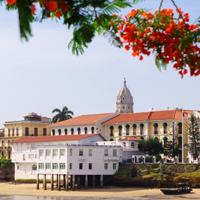 Kovalenko & Vera Attorneys at Law in Panama
Kovalenko & Vera Attorneys at Law in PanamaConnect
Kovalenko & Vera is a Panamanian law firm that specializes in immigration law, corporate law, real estate law, banking, contract negotiation, taxes and flag registry. With more than 20 years of professional practice, Kovalenko & Vera builds lasting relationships with our clients to ensure your interests are safeguarded.
Click connect to have our partner contact you via e-mail and/or phone.
 Kovalenko & Vera Attorneys at Law in Panama
Kovalenko & Vera Attorneys at Law in PanamaKovalenko & Vera is a Panamanian law firm that specializes in immigration law, corporate law, real estate law, banking, contract negotiation, taxes and flag registry. With more than 20 years of professional practice, Kovalenko & Vera builds lasting relationships with our clients to ensure your interests are safeguarded.
Connect
Click connect to have our partner contact you via e-mail and/or phone.
What cultural faux pas should I try to avoid making in Las Tablas?
We asked people in Las Tablas if they could share any humorous cultural blunders they commited. For new expats, keep in mind that these incidents are an inevitable part of expat life. Learning to laugh about them is the key!:
"In Las Tablas, it's important to avoid discussing sensitive topics such as politics, religion, and personal finances unless you are very close with the person. Panamanians are generally polite and respectful, so avoid using vulgar language or making offensive jokes. It's also considered rude to point directly at someone with your finger. Instead, use your whole hand to gesture in a general direction. When dining, it's customary to finish all the food on your plate as a sign of appreciation for the meal. Leaving food can be seen as wasteful or ungrateful. Panamanians value punctuality, so try to be on time for appointments and social gatherings. However, understand that local time may run a bit slower than what you're used to, so don't be surprised if locals are a bit late. Avoid wearing revealing clothing, especially in religious or formal settings. Panamanians generally dress modestly and conservatively. Lastly, it's important to respect the local customs and traditions. Las Tablas is known for its rich folklore and traditional festivals, so show appreciation and respect for these cultural practices," said one expat in Las Tablas.
About the Author
 Joshua Wood, LPC is one of the Founders of Digital Nomad Exchange and serves as Co-President of Expat Exchange. Prior to Expat Exchange and Digital Nomad Exchange, Joshua worked for NBC Cable (MSNBC and CNBC
Primetime). Joshua has a BA from Syracuse and a Master's in Clinical and Counseling Psychology from Fairleigh Dickinson University. Mr. Wood is also a licensed counselor and psychotherapist.
Joshua Wood, LPC is one of the Founders of Digital Nomad Exchange and serves as Co-President of Expat Exchange. Prior to Expat Exchange and Digital Nomad Exchange, Joshua worked for NBC Cable (MSNBC and CNBC
Primetime). Joshua has a BA from Syracuse and a Master's in Clinical and Counseling Psychology from Fairleigh Dickinson University. Mr. Wood is also a licensed counselor and psychotherapist.
Some of Joshua's articles include Pros and Cons of Living in Portugal, 10 Best Places to Live in Ireland and Pros and Cons of Living in Uruguay. Connect with Joshua on LinkedIn.

Get a quote in 2 minutes from our partner, Cigna Global Health.
Get Quote
![]() Panama Forum
Panama Forum
Talk with other digital nomads and expats in Panama on our Panama forum - meet people, get advice and help others.
![]() Contribute
Contribute
Help others in Panama by answering questions about the challenges and adventures of living in Panama.
Digital Nomads in Panama offer advice about healthcare, hospital visits, emergency rooms visits, finding a doctor and buying health insurance in Panama.

 Las Tablas, Panama
Las Tablas, Panama
